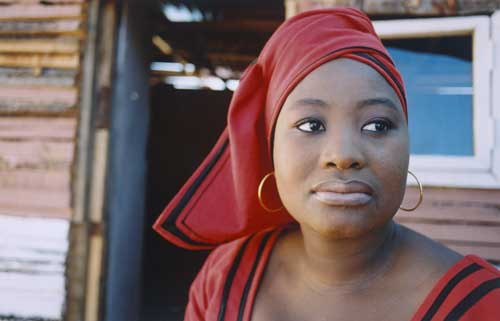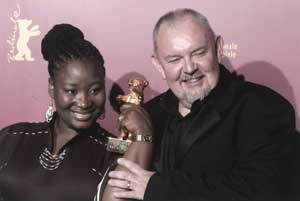










U-CARMEN E-KHAYELITSHA
 |
|
Roger Ebert wrote from the 2005 Cannes Film
Festival: |
|
Some rough voices, with less than refined timbre, may displease purists but these simply add to the gritty texture, as do occasional interpolations of African drums and acapella singing as well as some notably rude lyrics (piss off!). No one, however, can downplay Pauline Malefane’s smoldering Carmen, a full-figured icon in a blue sweatsuit who commands the screen with iron confidence, whether impudently balancing a cup on her head as she sings the Habanera or, in one powerful sequence, wordlessly contemplating her face in a mirror held by a witch doctor as her aria accepting imminent mortality plays inside her head. |
 |
In a freshly invented flashback,
Dornford-May lays out a backstory that makes Don Jose his
brother's killer and Micaela his widowed sister-in-law, thus
adding real weight to his mother's message of forgiveness
and helping to solve the problem of the protagonist as mama's
boy. If the film skimps on developing the love relationships, and
appropriates certain filmmaking clichés (flashbacks in tinted high-contrast,
circling 360-degrees around the lovers), adroit telephoto
camerawork and editing precision do their job to rouse the senses.
The Flower Song, conceived as a intimate exchange in a corner
of a nightclub, with background chatter counterpointing the composers
ravishing melody here, becomes thrillingly intense. What the
narrator says to first introduce Carmen applies equally to the film:
for every fault she had a quality that came out from the contrast. |
|
 |
|